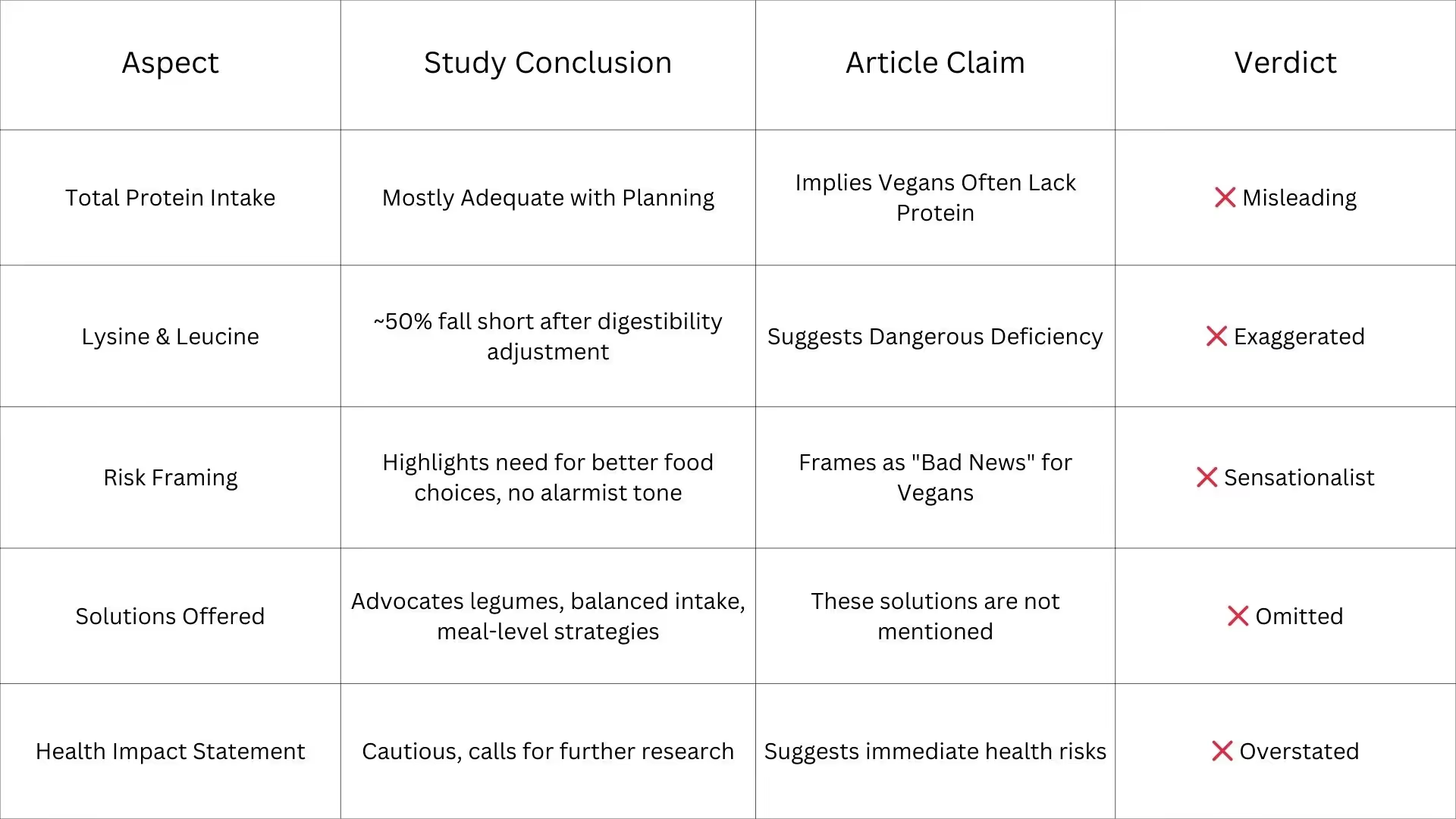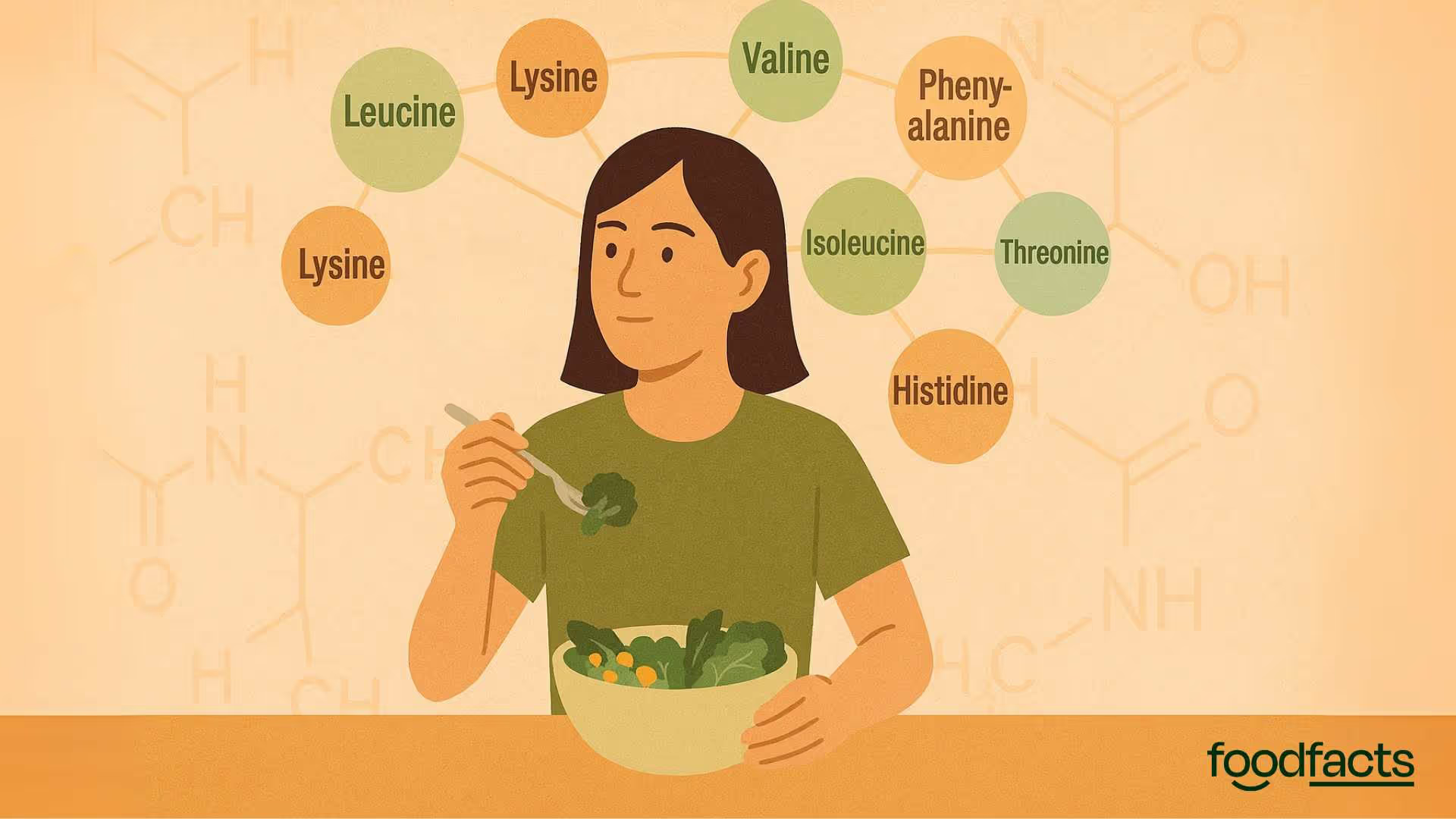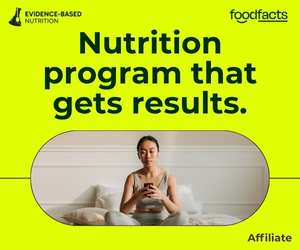
Do vegans lack protein and amino acids? A balanced look at the evidence





Coral Red: Mostly False
Orange: Misleading
Yellow: Mostly True
Green: True
Learn more about our fact-checking policies
An article published by the NY Post on April 29th claims that vegans are more likely to suffer from nutritional deficiencies, even when meeting daily protein goals through plant-based sources, potentially putting their health at risk.
While it's true that vegan diets can fall short of certain nutrients, such as iodine, if well planned and including a regular source such as an iodine supplement, fortified foods, or seaweed, it is possible to meet all dietary requirements.
This article may discourage people from adopting or maintaining a plant-based diet due to exaggerated concerns. Clear, evidence-based guidance is crucial, as vegan diets can offer health benefits when planned appropriately.

Beware of bias: Be aware of potential bias in the content, especially in opinion pieces.
The NY Post article cites two recent studies. The first one was published in the journal Nature, and it looked at the nutritional adequacy of 240 Australian participants’ dietary intake. The participants were following different diets, from strict vegans to regular meat eaters. This study comes in the context of growing recommendations to increase consumption of plant-based foods by certain national health authorities. Regarding protein, the study found that requirements were met for all groups, including vegans. A second study is then referenced to support the argument that despite adequate protein intake, deficiency in certain amino acids could put the health of vegans at risk.

Protein and Amino Acid Deficiency Concerns
Claim 1: "Think you’re getting enough protein on a plant-based diet? Don’t get too comfortable just yet. [...] here’s the twist: once digestion was factored in, only about half of the participants were getting enough of two essential amino acids — the building blocks of protein — called lysine and leucine."
Fact-Check: The study referenced here was led by Bi Xue Patricia Soh, and published on April 16, 2025 in the journal PLOS ONE. This study analysed the dietary intake of 193 long-term vegans in New Zealand. Using a four-day food diary, it quantified protein intake and quality as compared to reference intake values.
The key findings from the study that are discussed in the article are:
- Around three-quarters (78.8% of males and 73.0% of females) met the recommended protein intake, based on the Estimated Average Requirement for protein.
- When adjusted for digestibility, only ~50% met requirements for lysine and leucine.
- Legumes and seeds were the top sources of protein and lysine.
While the NY Post article correctly reports these findings from the study, Professor Tom Sanders, Professor Emeritus of Nutrition and Dietetics, explains that there are several limitations missing, which means the results should be taken with caution:
- No omnivore comparison group was included.
- Gut microbiota's role in amino acid synthesis was not considered.
- While the article goes on to list the risks associated with lysine deficiency, the results do not necessarily mean the participants were experiencing lysine deficiency, “especially as the reference intakes are based mainly on American studies where intakes of protein were high and based mainly on animal products.”
The NY Post article ends with a brief reference to Professor Tom Sanders’ concerns. However, the overall tone of the article, exemplified by its rather alarmist headline, implies generally negative findings, as demonstrated by the following table:
Expert Alignment Table

This table highlights how the article’s framing misrepresents the study’s balanced scientific findings, promoting fear rather than understanding.
General Nutritional Deficiencies in Vegans
Claim 2: “New research suggests that vegans may be more likely to suffer from nutritional deficiencies than their meat-eating counterparts.”
Fact-Check: The Australian study started by reporting a generally more favourable nutrient composition for those on plant-based diets, including lower levels of saturated fat, trans fat, or cholesterol, combined with higher levels of dietary fibre, iron or Vitamin E. It did also report that those on a plant-based diet had lower levels of vitamin B12, long chain omega-3 polyunsaturated fatty acids, and iodine, as reported by the NY Post. Among these, the researchers noted that vitamin B12 and iodine deficiencies were of most concern.
In the sample studied, regular meat eaters consumed less fibre than participants on plant-based diets, but still met dietary requirements. The researchers noted that this might have been due to a “‘healthy user effect’ which explains health conscious individuals who become involved in research may have healthier lifestyle behaviours and dietary patterns.” Previous studies in similar populations have shown that 7 out of 10 adults following regular meat diets did not consume enough fibre.
The study emphasised the importance of proper dietary planning to avoid deficiencies. For example, to address the reported deficiencies in B12, Iodine or Omega-3s on plant-based diets,
- Vitamin B12 must be supplemented or sourced from fortified foods.
- Iodine can be obtained from iodized salt or seaweed.
- Omega-3s (EPA/DHA) are accessible via algae oil supplements.
➡️ Take Away: The claim lacks context, because it fails to emphasise the importance of dietary planning which applies across dietary patterns and is essential to prevent deficiencies..
The misleading headline does not represent the study
The Headline:
"New Research is Bad News for Vegans"
Fact-Check: The headline is sensationalist and designed to provoke concern. Both of the studies referenced in the article present a mix of findings, both positive and negative, which are not reflected in the title. For example, the Australian study comparing diets containing different amounts of animal products, noted higher intakes of several nutrients on plant-based diets (e.g., higher intake of fiber, folate, magnesium). However, these benefits are downplayed by the sensational headline.
Peer-reviewed research, such as that from the Academy of Nutrition and Dietetics, continues to affirm that well-planned plant-based diets are health-promoting.
➡️ Take Away: The headline is misleading, leaning towards clickbait rather than balanced reporting.
We have contacted the NY Post and are awaiting a response.
Disclaimer
This fact-check addresses nutritional claims and is not a substitute for personalised medical or dietary advice. For individual guidance, consult a registered dietitian or healthcare provider.
Stand Against Nutrition Misinformation
Misinformation is a growing threat to our health and planet. At foodfacts.org, we're dedicated to exposing the truth behind misleading food narratives. But we can't do it without your support.
📚 Sources
Soh, B.X.P. et al. (2025). “Evaluation of protein intake and protein quality in New Zealand vegans.”
Austin, G. et al. (2025). “Dietary intakes and nutritional adequacy of Australians consuming plant-based diets compared to a regular meat-eating diet.”
Fayet-Moore, F. et al. (2018). “Dietary Fibre Intake in Australia. Paper II: Comparative Examination of Food Sources of Fibre among High and Low Fibre Consumers.”
Sanders, T., Science Media Centre (2025). “Expert reaction to study of vegan protein consumption and amino acid intake.”
Melina, V., et al. (2016). “Position of the Academy of Nutrition and Dietetics: Vegetarian Diets.”
Harvard T.H. Chan School of Public Health. (2020). “With a little planning, vegan diets can be a healthful choice.”



foodfacts.org is an independent non-profit fact-checking platform dedicated to exposing misinformation in the food industry. We provide transparent, science-based insights on nutrition, health, and environmental impacts, empowering consumers to make informed choices for a healthier society and planet.

Was this article helpful?

















.svg)
